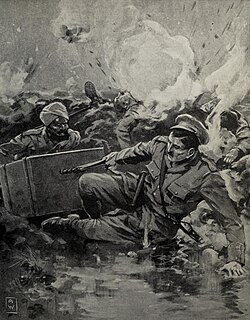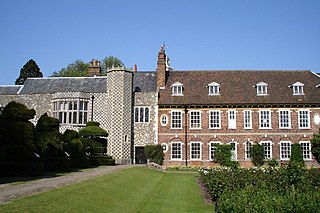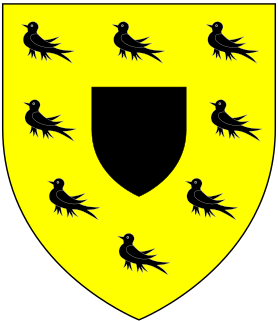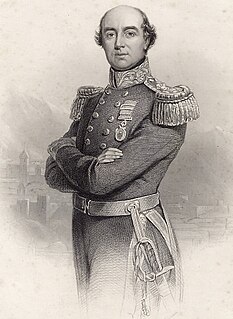
Earl of Strafford is a title that has been created three times in English and British history.

There have been six baronetcies created for persons with the surname Smyth, two in the Baronetage of England, one in the Baronetage of Great Britain, one in the Baronetage of Ireland and two in the Baronetage of the United Kingdom. One creation is extant as of 2010.
Nineteen baronetcies have been created for persons with the surname Hamilton, eight in the Baronetage of Nova Scotia, one in the Baronetage of England, five in the Baronetage of Ireland, one in the Baronetage of Great Britain and four in the Baronetage of the United Kingdom. As of 2008 two creations are extant, two are dormant, two are either extinct or dormant and twelve extinct.

There have been two baronetcies created for persons with the surname Fisher, both in the Baronetage of England.

The Ashe Baronetcy, of Twickenham in the County of Middlesex, was a title in the Baronetage of England. It was created on 19 September 1660 for Joseph Ashe, subsequently Member of Parliament for Downton. The second Baronet also represented Downton in Parliament. The title became extinct on his death in 1733.

There have been two Baronetcies created for persons with the surname Austen, one in the Baronetage of England and one in the Baronetage of Great Britain. Both creations are extinct.

The Anderton Baronetcy, of Lostock in the County of Lancaster, was a title in the Baronetage of England. It was created on 8 October 1677 for Francis Anderton of Lostock Hall in the parish of Bolton le Moors, Lancashire. The Andertons of Lostock were descended from the ancient family of Euxton Hall, near Chorley, Lancashire. They acquired Lostock by marriage in the 13th century. They were a devout Roman Catholic family and their estate was lost by sequestration in 1615 due to recusancy but was restored after the English Reformation to Francis Anderton the first Baronet. The third, fourth, fifth and sixth Baronets were brothers. On the death of the third Baronet, his heir, his brother Lawrence, a Benedictine monk succeeded to the Baronetcy but relinquished his claim to the Lostock estate. However his younger brother Francis, a Jacobite, was convicted of High Treason for his part in the Battle of Preston (1715) and the estate was again lost by sequestration. Lawrence returned from France, renounced his Catholicism and successfully reclaimed the estate. Francis was pardoned and on his death succeeded to the Baronetcy but he did not recover the estate which passed to his sister and her husband. The Baronetcy became extinct on the death of Sir Francis in 1760.

There have been nine baronetcies created for persons with the surname Anderson, four in the Baronetage of England, one in the Baronetage of Great Britain and four in the Baronetage of the United Kingdom. All creations are extinct.

Sir William Brownlow, 1st Baronet of Humby in Lincolnshire, was an English politician and barrister.
There have been six Forster Baronetcies, four in the Baronetage of England, one in the Baronetage of Ireland and one in the Baronetage of the United Kingdom. All are extinct.

There have been twenty baronetcies created for persons with the surname Williams, eight in the Baronetage of England, three in the Baronetage of Great Britain and nine in the Baronetage of the United Kingdom. Only five of the creations are extant as of 2017..
Four baronetcies have been created in the surname of Fowler, all of which are now extinct.
There have been seven baronetcies created for persons with the surname Edwards, three in the Baronetage of England and four in the Baronetage of the United Kingdom. Only one creation is extant as of 2007.
The Kniveton Baronetcy, of Mercaston in the County of Derby, was a title in the Baronetage of England. It was created by King James I on 29 June 1611 for William Kniveton of Mercaston Hall, Muggington, Derbyshire. The family originated in the village of Kniveton,, from where their name derived. Branches of the family later had seats at Bradley and by virtue of the 15th century marriage of Nicholas Kniveton, at Mercaston, near Muggington, Derby

There have been five baronetcies created for members of the old established family of Peyton of Peyton Hall in the parish of Boxford in Suffolk, all of whom were descended from Sir Robert Peyton (d.1518) of Isleham in Cambridgeshire, grandson and heir of Thomas Peyton (1418–1484) of Isleham, twice Sheriff of Cambridgeshire and Huntingdonshire, in 1443 and 1453. All the baronetcies are extinct.

There have been two baronetcies created for members of the Barkham family, both in the Baronetage of England. Both creations are extinct.
The Sprignell Baronetcy, of Coppenthorp, now called Copmanthorpe, in the historic county of Yorkshire, was a title in the Baronetage of England. It was created on 14 August 1641 for Richard Sprignell. The title became extinct on the death of the third Baronet in 1691.

Sir Robert Barnham, 1st Baronet of Boughton Monchelsea Place was an English politician who sat in the House of Commons from 1660 to 1679.
There have been three baronetcies created for persons with the surname Duncan, one in the Baronetage of Great Britain and two in the Baronetage of the United Kingdom. All three creations are extinct.

The Bowyer baronetcy, of Knipersley in the County of Stafford, was created in the Baronetage of England in 1660 for John Bowyer. He sat as Member of Parliament for Staffordshire and Newcastle-under-Lyme. His elder son, the second Baronet, represented Warwick and Staffordshire in the House of Commons. His son, the third Baronet, died childless and was succeeded by his uncle, the fourth Baronet. On the latter's death in 1701 without surviving male issue the title became extinct.













